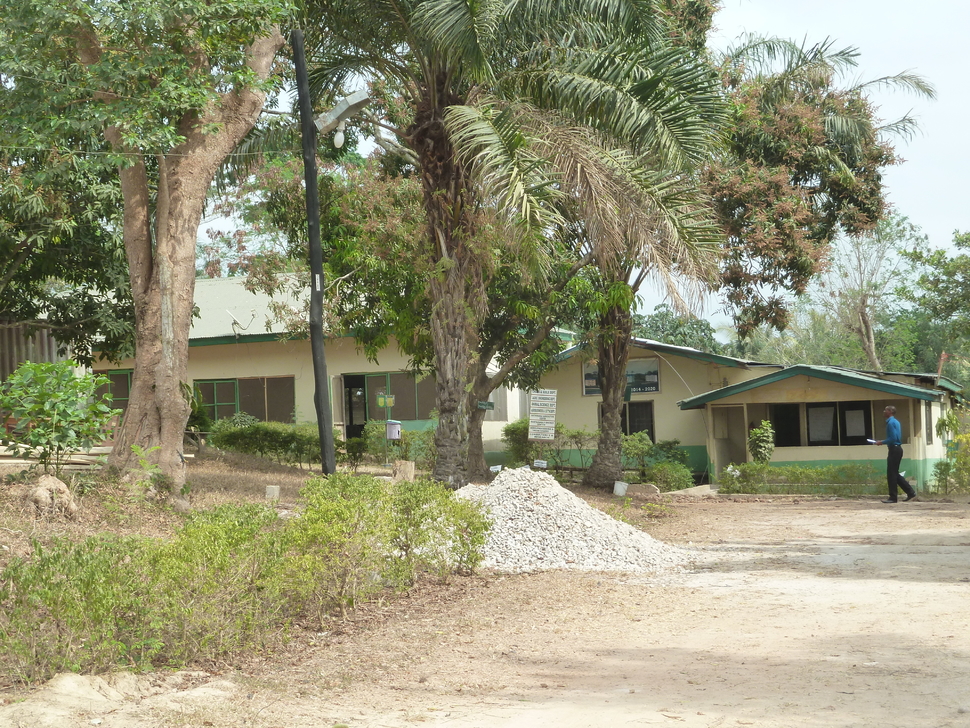Mission
KITA’s mission is to network with global and local institutions to better the lives of rural
farmers, unemployed youth, hungry and homeless families, aids victims, orphans, the
aged and the disabled. To accomplish this mission KITA uses several methods, including
trainings, seminars, technology transfer, on-farm research, volunteer exchanges and
environmental conservation.
One of their main priorities is developing in an environmental sustainable way, that
enhances the local economy, the nation and the quality of life in Africa. For the agricultural
transformation in Ghana and Africa sustainable energy is needed, according
to KITA. Therefore KITA has an own Center for Sustainable Energy in order to provide
energy solutions in collaboration with partners for the agricultural industry in Ghana,
including the development of clean cookstoves.
Involvement in the project
KITA is the launcher of the project and also the client. KITA is mostly interested in developing
a clean cookstove and eventually in producing and selling the cookstove, although
outsourcing of the production and sales would also be an option. If there is
any profit, the institute will be able to further invest in the project, so there is always
innovation and improvement possible. KITA is the main stakeholder and will play a major
role during the internship. KITA also provides the supervisors for the project and is
responsible for the continuation of the project. Below the supervisors of KITA are listed.
Supervisors
Samuel Tekye
Samuel is the director of KITA and supervises the project. He is also responsible for
the finances of the project. For the continuation of the project it is important to keep
Samuel updated about the progress, because he can assure the following stages of the
project. Samuel is not involved in day-to-day operations. If there are any great difficulties
or investments are needed, it is necessary to involve Samuel.
Nick Traini
Nick works for the American NGO ‘4H Ghana’ and is a volunteer at KITA from August
2015 to June 2016. 4H is a youth development organisation that seeks to empower
young people. In the United States he studied Agriculture Education and he was a
teacher of mechanics. Together with his wife, Haley Clement, they are structuring the
educational part of KITA. Nick supervises the project on a daily basis. He knows a lot
about mechanics and materials and that makes him a great supervisor, because he
could give advice on technical issues as well. When we arrived he was also able to help
us with culture related issues and he showed us the surroundings and where we could
buy things. Nick takes care of the budget for the project and helps with contacts for
the construction of the prototypes. Nick could also play a role in the continuation of
the project, because he is working at KITA until June and has four more months to look
after the further progress of the project.
George Ansah
George was the main supervisor during the internship of 2014-2015. Last year he was
mainly assigned to help with the fieldwork. Together with his wife and also previous
staff member of KITA, Christy Cook, he followed trainings organised by the SNV (Stichting
Nederlandse Vrijwilligers) on designing and constructing improved cookstoves.
There he learnt how to create a Lorena Stove, which is a cookstove completely made
out of clay. Nowadays George and Christy live a few hours away from KITA and visit
KITA only sometimes. Via Whatsapp George is available for advice. He is able to provide
contacts for points of sales of the required materials.
Lovans Tekye
Lovans has worked for KITA in the past and after working for SNV for three years he is
now back at KITA. His main task at KITA is to set up an engineering course and to expand
the centre for sustainable energy. In the past years Lovans was involved in launching
the Clean Cookstove Alliance in Ghana. During our internship Lovans was not at KITA
and thus not supervising us, but he is responsible for the continuation of the project.
Students of KITA
The KITA students participate in this project for their final thesis. During the internship
they will collaborate with the TU Delft students in order to develop a clean cookstove.
The KITA students have more agricultural knowledge and because they are Ghanaians,
they have all the cultural knowledge as well. They can speak Twi, the local language,
and they know the habits and manners, which makes the communication with local
kenkey makers much easier. The KITA students could also contact other stakeholders
more easily. For their work the students gain credit and it is part of their educational
program. They also could gain cultural and technical knowledge from the TU Delft students.
We live together with the female KITA students and they can show and teach us
the Ghanaian way of living. During the third and fourth week of the internship the KITA
students have two weeks full of examinations and do not have much time to work on
the project during and before these weeks. They do stay at KITA during their official
holidays in order to help with the project.
